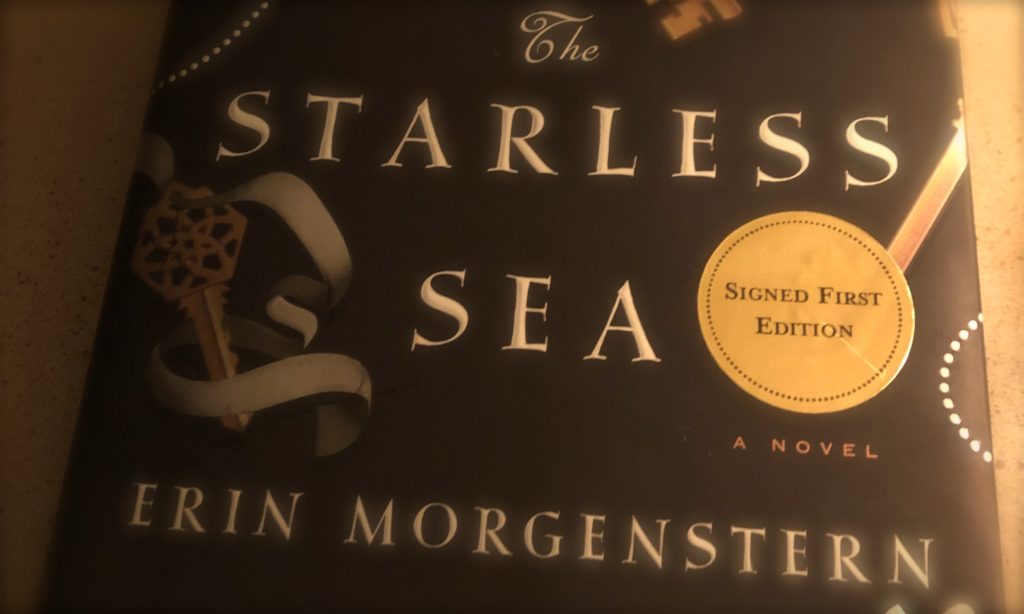It has been decades since I’ve wanted to live in the world of a fantasy novel as much as the one in Erin Morgenstern’s The Starless Sea. Entering the caverns of a vast secret underground library – one accessed through doors in our world both hidden and in plain sight – made me feel as if I was returning to a home I’d never known I wanted so much.
Morgenstern’s gift for creating a mesmerizing universe very much but not quite like our own, which she initially showed in the luminous Night Circus, explodes in this novel. Who wouldn’t want to step into a place with “stories written on books and sealed in jars and painted on walls. Odes inscribed onto skin and pressed into rose petals. Tales laid in tiles upon the floors, bits of plot worn away by passing feet”?
Such poetic prose regales us throughout the entire 500-page book. The reader walks through scene after scene, set after set, not just in surround sound but surround sensing. When I saw in the acknowledgements Morgenstern’s statement that “I always consider what everything smells like when I write,” the book’s sensory impact made even more sense.
The stories populating The Starless Sea nest within each other like Russian dolls. I felt happily confused, then satisfied, by the challenge of trying to connect plot fragments as revelations unrolled thick toward the end. And the characters are more than memorable. I would recognize them on the street as old friends (or nemeses), and I identified with them as they made the grand choices that such grand fantasy novels harbor.
As one of the protagonists muses toward the end of the book: “For a while I was looking for a person but I didn’t find them and after that I was looking for myself. Now that I’ve found me I’m back to exploring, which is what I was doing in the first place before I was doing anything else and I think I was supposed to be exploring all along. Does that sound silly?”
To which another, quite different protagonist responds: “That sounds like a great adventure.”
Exactly. Just like this book.


